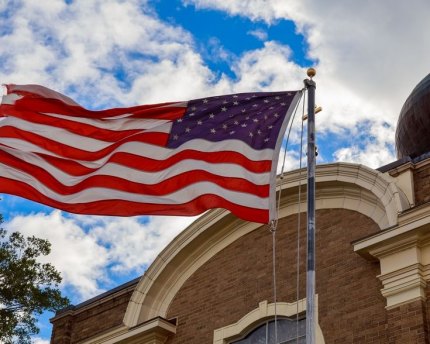Tax restrictions eased for religious groups

By Trump’s order, the government won't enforce the Johnson Amendment, which mandates that religious and charitable groups with tax-exempt status can’t be involved in partisan politics. The amendment was approved in 1954 and named for its sponsor, then-Sen. Lyndon B. Johnson (later the 36th president of the United States).
While some religious leaders welcomed the order, others argued that it is mistake.
Under the executive order:
- The government won’t enforce rules that bar churches from involvement in partisan politics. Specifically, the order instructs the Treasury Department to “not take any adverse action against any individual, house of worship, or other religious organization on the basis that such individual or organization speaks or has spoken about moral or political issues from a religious perspective, where speech of similar character has, consistent with law, not ordinarily been treated as participation or intervention in a political campaign on behalf of (or in opposition to) a candidate for public office by the Department of the Treasury.” Adverse action, the order clarifies, means imposition of any tax or tax penalty, the delay or denial of tax-exempt status or the disallowance of tax deductions for contributions.
- The president instructs the treasury, labor and health departments to “consider issuing amended regulations, consistent with applicable law, to address conscience-based objections to the preventive-care mandate” in health care law.
- The president instructs Attorney General Jeff Sessions to “as appropriate, issue guidance interpreting religious liberty protections in federal law.”
Here are three different reactions:
Faith & Freedom Coalition: In a statement on the group’s website, Ralph Reed, the organization's president, said that the executive order, “removes a sword of Damocles that has hung over the faith community for decades by administratively repealing the Johnson Amendment and restoring the right to political speech by pastors, churches and ministries. By ending the Obamacare mandates that violate the religious faith of the Little Sisters of the Poor and other faith-based nonprofits, this executive order lifts a cloud of fear over people of faith and ensures they will no longer be subjected to litigation, harassment and persecution simply for expressing their religious beliefs. This is just the first bite at the apple, not the last. We still support the full statutory repeal of the Johnson Amendment and Obamacare mandates, but this order is a giant step in the right direction in protecting the First Amendment rights of Christians and other Americans of conscience and faith. I applaud President Trump and his administration for this bold leadership in advancing religious freedom.”
The Human Rights Campaign: The organization specifically objects to part of the order calling for the attorney general to provide guidance on “interpreting religious liberty protections in federal law."
The statement said, “This sweeping approach could result in an unprecedented expansion of religious exemptions affecting employment, services and programs. Revisiting federal law, including regulations and policies, will almost certainly have significant implications for LGBTQ (lesbian, gay, bisexual, transgender and questioning) people. In essence, the executive order punts the question of how and where the administration will permit discrimination against LGBTQ people to Jeff Sessions, a man who has consistently denied LGBTQ people equality under the law.”
The Interfaith Alliance: A statement by the group's president, Rabbi Jack Moline, said, “President Trump’s actions today should not be allowed to stand. Removing the legal sanctions for political endorsements by tax-exempt houses of worship will do more to compromise religious freedom than any action in recent memory. That minority of clergy — almost all from the religious right — who want to impose their private partisanship on their congregations will be emboldened to turn worship into campaign rallies. Government officials will feel free to violate the Establishment Clause by promoting their own religious beliefs in the performance of official duties.
“Today’s executive order is payment to religious extremists for their support. It is not in the interests of American citizens, including those who voted Mr. Trump into office. It is a betrayal of the First Amendment. The responsibility now falls to clergy of conscience to protect their pulpits from partisan political intrusions, and to citizens to insist that their legislators overturn this overreach.”
Related:
What are executive orders?
Resources: Executive orders by the numbers
Follow StudyHall.Rocks on Twitter.
If you would like to comment, give us a shout, or like us on Facebook and tell us what you think.

